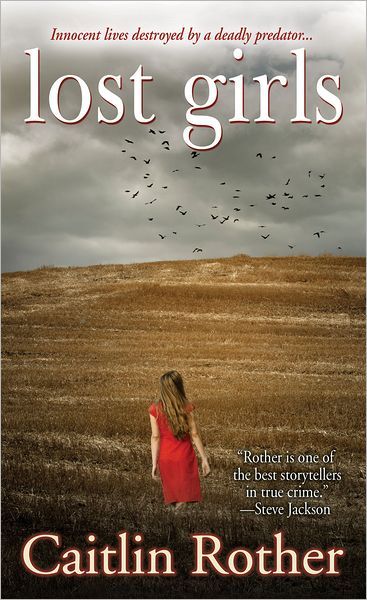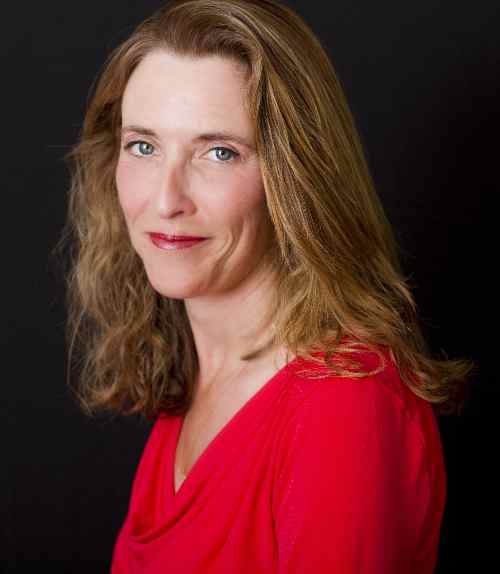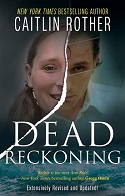 It is my honor to welcome acclaimed true crime author Caitlin Rother to Colloquium today. She has penned eight fiction and nonfiction works, including Dead Reckoning, in which she recounted the story of Tom and Jackie Hawks, the couple from Newport Beach, California, who lost their lives when they were thrown overboard, tied to the anchor of yacht, by Skylar Deleon and his accomplices. She also chronicled the demise of Kristin Rossum in Poisoned Love. Rossum, addicted to crystal meth while employed in a toxicology lab, was found to have poisoned her husband in order to prevent him from exposing her drug addiction and affair with her boss.
It is my honor to welcome acclaimed true crime author Caitlin Rother to Colloquium today. She has penned eight fiction and nonfiction works, including Dead Reckoning, in which she recounted the story of Tom and Jackie Hawks, the couple from Newport Beach, California, who lost their lives when they were thrown overboard, tied to the anchor of yacht, by Skylar Deleon and his accomplices. She also chronicled the demise of Kristin Rossum in Poisoned Love. Rossum, addicted to crystal meth while employed in a toxicology lab, was found to have poisoned her husband in order to prevent him from exposing her drug addiction and affair with her boss.
Lost Girls chronicles the desperate searches for two teenage girls, Chelsea King and Amber Dubois, by San Diego-area authorities. Eventually, John Albert Gardner stood trial for their murders and received a life sentence. He was a convicted sex offender who violated the terms and conditions of his parole several times, but was not returned to prison. Because of his previous conviction, Gardner was ineligible to enter many mental health programs and facilities, even though he reported feeling out of control and likely to hurt someone. The case resulted in legislation designed to prevent similar cases by providing stronger protections for California children.
Why I Felt Compelled to Write Lost Girls
First, I have a confession to make. After writing Body Parts, a book about serial rapist-killer Wayne Adam Ford, I really didn’t think I’d ever be able to stand getting into the head of another man like him, let alone one who had molested, raped and killed teenagers. I also have a standing rule: I cannot and will not write stories about young murdered children. I just can’t stomach it.
But on March 4, 2010, the day after John Gardner was arraigned for killing Chelsea King, and the same day he quietly told his attorneys he could lead them to Amber’s body (which remained a secret for six weeks), I got an e-mail from an editor from The Daily Beast, asking if I’d be interested in covering this case for them.
I said yes, and spent fourteen hours researching and writing the first article. The following week, I wrote a second one, which was difficult because District Attorney Bonnie Dumanis had issued a “gag order” e-mail, and the judge had also put an actual gag order in place. But, after watching my own community reeling from the emotional fallout of this case, I was feeling it, too. I felt in my gut that I really wanted to tell this story – both sides of it, and very much in-depth.
For me to move forward and get past my own rule, I had to convince myself that Chelsea and Amber weren’t children, even though some folks might disagree. Still, because of their age and out of respect to their families, I knew I had to be extremely sensitive and thoughtful about how I wrote this book.
Following my usual methodology, I read every article and collected every piece of information I could, trying to determine if I could go further than the mainstream media. With the crazy amount of coverage, I was a bit worried at first. However, after a long series of calls and e-mails, I was able to persuade John Gardner’s family to open up to me. They were paid no money for telling me their story, they did it because they wanted it to be told accurately and in full detail, not in sound bites, and not taken out of context by the media.
Knowing that I could tell the back story of how Gardner evolved into the man who could commit these heinous acts, I felt I could go deeper than any reporter had gone before me. And despite the dark subject matter, the investigative passion of revealing new facts energized me. I felt this book was more important than some of my earlier works because people are so scared of losing their children to sexual predators, and I felt we could all benefit from knowing why this happens. We, as a society, seem to have so little understanding of these men and how to deal with them. For some, I believe, it is just too repulsive and difficult a subject to ponder, but burying our heads in the sand won’t stop these crimes from occurring.
The Gardner-Osborn family and I share a hope that this book will help educate people by delving into all the factors that contributed to making John Gardner into a man who could not control his sexual and homicidal compulsions, and by casting a spotlight on the flawed system that allowed him and predators like him to roam free to prey on children, teenagers and grown women.
Although they’ve since become pessimistic that anything they say will help, I’m still hopeful that the idealism that drove me into journalism years ago was right and true, and that this story will give unprecedented insight into all the facets of a sex offender like John Gardner — the sweet, nurturing, loving and goofy guy his family once knew, the guy who seemed friendly and normal to people at the dog park, as well as the angry, manipulative and violent man who brutally killed these poor girls.
I hope that we, as a society, can find ways to help people like him before they get to a breaking point or to stop them from doing harm after they’ve reached it. And I hope that with this book, we can learn something that will help protect us and our families from falling to the same fate as Amber Dubois, Chelsea King and Gardner’s third victim, Candice Moncayo, who lived to deliver a powerful victim impact statement to him during the sentencing hearing.
I did try to speak with Candice, as well as Chelsea’s and Amber’s parents, so I could pay a more personal tribute to each victim by hearing their stories directly rather than piecing them together from other sources, but they chose not to be interviewed. (I can’t tell these stories without writing about the victims and their families – they are why we tell these stories in the first place.) Instead, I respectfully crafted their stories from their own words in public comments to the media, public records and details I collected from interviews with law enforcement and other sources.
I understand that this was an enormously traumatic event in these families’ lives, and I hope they will understand that I had only good intentions in writing this book, that my goal was to educate people and to help prevent tragedies like this in the future. Some victims and their families have cooperated fully with me in my previous books, they have told me they found relief in doing so, and they have thanked me for my sensitive approach. I can also see that others might find it too painful to do the same. I’m sure these events are still fresh in their minds and that they are still grieving.
I think we all want to change the system in a positive way, to save lives and to keep this from happening again. This is my way, and I hope they find some peace and success in theirs.
Meet Caitlin

Author Caitlin Rother was an only child who entertained herself “by reading stacks upon stacks of books and using my mind as a stage where characters talked to each other.” She holds a Bachelor’s degree in psychology from the University of California, Berkeley and earned her master’s degree from the Medill School of Journalism at Northwestern University. In high school and college, she explored journalism, but opted for a career in public relations with a San Francisco cruise line. Eventually, though, she was compelled to choose the “balance and objectivity of newspapers over the positive spin world of PR, marketing and advertising, . . . ”
It was not until the late 1980s that she joined a writing workshop in Northampton, Massachusetts, in her quest to write more in-depth, creative stories while toiling as a reporter with the Springfield Union-News. The series of short stories produced in that workshop eventually evolved into her first novel, Naked Addiction.
As an investigative journalist, Caitlin was drawn to “complex and dramatic stories – the most bizarre or tragic deaths and the public figures whose questionable actions evoked my investigative curiosity.” She wrote about Michael Jackson’s original molestation charges and addiction to painkillers, the lifestyle of the Heaven’s Gate cult and strippers’ laundered political contributions to San Diego City Council members, and developed expertise in addiction (alcohol and methamphetamine, suicide, mental illness and the family dynamics and pharmacology involved).
She expanded a series of news stories about the Kristin Rossum murder case into what would become her first book, Poisoned Love. In 2006, she contracted to draft her second non-fiction book and in a risky leap of faith, left the security of her position with The San Diego Union-Tribune behind.
In 1998, Caitlin was nominated for a Pulitzer Prize by the Union-Tribune. Her story about a depressed teenager who died after lighting himself on fire behind a WalMart won three awards in the annual Best of the West contest. Her journalistic honors also include a Best Feature award from the Associated Press News Executives Council and Best News-Feature award from the Los Angeles Press Club.
When not writing, Caitlin teaches narrative non-fiction, feature writing, interviewing and creative writing at University of California, San Diego Extension, and works as a book doctor/editorial and research consultant. She also makes television and radio appearances as a crime expert. She is the founder of San Diego Writing Women, a group of approximately ten authors who blog, host panel discussions, and speak about writing.
Her other books include Deadly Devotion/Where Hope Begins; My Life, Deleted; Body Parts; and Twisted Triangle. She is currently hard at work on I’ll Take Care of You, set for publication in 2013. It is the story behind the love triangle murder of Newport Beach multimillionaire inventor Bill McLaughlin by his fiancee, Nanette Packard, and her NFL-playing lover, Eric Naposki.
Connect with Caitlin via her website, or on Facebook or Twitter.



















2 Comments
WOW! What a powerful story! I can’t imagine the toll it took to hear, study and write these stories. I’m sure it taxed on every emotion imaginable. I’d love to read the story Lost Girls. Though it contains horrid and sad acts, so much can be learned from each personal involved. Kudos to Caitlin!
Great post! Will be sharing!!